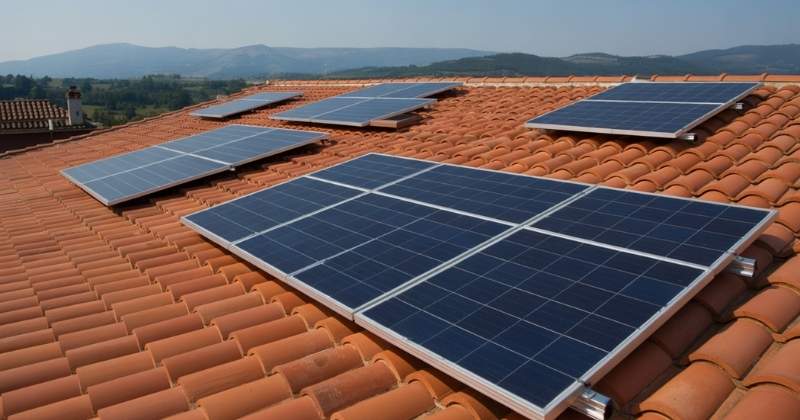
The South African rand gained considerable strength on Wednesday, with its performance largely buoyed by favourable manufacturing data and a softening United States dollar. By mid-week, the rand had reached a trading level of 17.1850 against the greenback, marking a climb of approximately 0.4% compared to the previous day’s close. This level represented the strongest position the currency had achieved in roughly a year.
Key Takeaways
- Rand strength driven by local resilience. Domestic demand and positive PMI data boosted the rand to its strongest level in a year, though global trade headwinds remain a challenge.
- Major industries under pressure. Poultry giants face antitrust scrutiny, Eskom battles mounting municipal debt, and Ford South Africa plans job cuts due to shrinking export demand.
- Shift towards decentralised energy. Rooftop solar power outpaced nuclear contributions, highlighting how private investment in renewables is reshaping South Africa’s electricity landscape.
About Arcadia Finance
Get the funds you need quickly with Arcadia Finance. Apply at no cost, compare offers from 19 trusted NCR-accredited lenders, and enjoy a smooth, reliable process tailored to your budget.
Rand, Dollar Trends and Oil Market Impact
Data released through the Absa Purchasing Managers’ Index (PMI) showed that business confidence and sentiment within South Africa’s manufacturing sector had improved during September. This was attributed mainly to stronger domestic demand, as international markets continued to show sluggish performance under the weight of restrictive United States tariffs, a challenging global trade climate, and ongoing disruptions at South Africa’s ports.
The PMI is regarded as a leading economic indicator worldwide, with any reading above 50 signalling expansion and below 50 indicating contraction. September’s reading therefore offered reassurance of local resilience, even as global demand remains under strain.
The United States dollar itself was slightly weaker, declining around 0.3% against a basket of other major currencies. This weakness stemmed from concerns surrounding a possible federal government shutdown in Washington, alongside worries about potential delays in the release of crucial employment figures. These numbers are vital for shaping policy decisions at the Federal Reserve. For context, when the US government shuts down, it disrupts data reporting, delays pay for federal workers, and unsettles global markets, given the dollar’s role as the world’s reserve currency.
By Thursday, 2 October, the rand was trading at R17.21 against the dollar, R23.19 against the pound sterling, and R20.19 against the euro. At the same time, global oil markets showed modest softness, with Brent crude oil recorded at $65.76 per barrel. A drop in oil prices is especially significant for South Africa because the country imports most of its crude oil. Lower prices can ease petrol and diesel costs, which directly impacts transport and food prices, creating a ripple effect through the economy.

Key Events and Issues Affecting South Africa Right Now
South African Poultry Industry Facing Antitrust Scrutiny
The South African poultry sector, worth more than R70 billion a year, is facing intense scrutiny as the Competition Commission launches an antitrust inquiry. The country’s four largest poultry producers, Astral, Rainbow Chicken, Country Bird and Sovereign, together account for nearly 63% of national chicken production. These companies must now justify their pricing structures and business practices to establish whether anti-competitive behaviour is taking place. Chicken is the most consumed meat in South Africa, with per capita consumption higher than beef, lamb and pork. This gives the poultry sector significant influence over food inflation.
The inquiry has the potential to reshape the dynamics of the sector, given its vital role in both the national food supply chain and rural employment. The outcome of the Commission’s work could influence food affordability and have lasting consequences for both businesses and consumers. For consumers, this may lead to price adjustments in supermarkets, while for smaller producers, it could mean greater opportunities if stricter regulations are enforced on the major players.
Rising Cybercrime: Taxpayer Profile Hijackings
The Office of the Tax Ombud has launched an investigation into an alarming rise in cases where taxpayer eFiling profiles are hijacked. These incidents involve cybercriminals gaining unlawful access to profiles, altering the registered banking details, and diverting legitimate tax refunds into fraudulent accounts.
Cybercriminals often use phishing emails, fake SARS websites, and weak passwords as gateways. Taxpayers are encouraged to regularly change passwords, enable two-factor authentication, and remain cautious of suspicious communications.
The ombud reported that tax practitioners appear to be the most frequent targets, though individual taxpayers are also significantly affected. While many of the reported cases involve amounts of less than R10,000, there have been multiple incidents where the stolen funds have exceeded R100,000. These breaches highlight weaknesses in system safeguards and underscore the pressing need for stronger cybersecurity measures to protect both taxpayers and the national revenue service. In fact, South Africa has been ranked as one of the countries most targeted by cybercrime in Africa, costing the economy billions each year. This suggests the problem extends far beyond tax fraud and into banking, business, and even personal data breaches.
Eskom’s Mounting Municipal Debt Burden
Eskom’s Chief Financial Officer, Calib Cassim, has warned that unpaid debt owed by municipalities may rise to over R300 billion by the year 2030 if current trends continue. He pointed out that the various intervention strategies introduced by the National Treasury have so far failed to curb this crisis. To put this into perspective, R300 billion is close to half of South Africa’s total annual health budget. Such a burden would place Eskom in an even more fragile position and threaten the government’s fiscal stability.
The inability of municipalities to settle their accounts with the state-owned power utility continues to undermine Eskom’s financial stability. If left unaddressed, the swelling debt could hinder the utility’s capacity to maintain operations and perform critical infrastructure upgrades, further complicating South Africa’s ongoing electricity supply challenges. One suggested solution has been the installation of prepaid meters in defaulting municipalities, allowing Eskom to collect revenue upfront and avoid further arrears, though political resistance has slowed progress.
Ford South Africa Job Cuts Linked to Export Market Shifts
Ford South Africa has announced plans to shed nearly 500 jobs, a move driven by changing global market conditions rather than domestic performance. The company explained that tax adjustments in Europe, combined with lower-than-expected demand for the plug-in hybrid version of its Ranger bakkie, have resulted in declining export orders.
While the automaker’s local production lines remain stable, the global market challenges have forced the company to scale back certain operations. The decision reflects the significant impact of international policy shifts and consumer demand on South Africa’s automotive export industry, which is heavily tied to the performance of overseas markets. The automotive industry is one of South Africa’s largest employers and contributes roughly 5% to GDP, meaning job cuts in this sector have a knock-on effect across suppliers, logistics, and even local communities.

Rooftop Solar Surpasses Nuclear Energy Contribution
The Council for Scientific and Industrial Research (CSIR) has reported that private rooftop solar installations collectively supplied 5% of South Africa’s total electricity demand in the first half of 2025. The energy produced from these solar panels amounted to 5.4 terawatt-hours, surpassing the 4.7 terawatt-hours generated by the country’s only nuclear power facility, Koeberg. This milestone is significant because Koeberg has historically been a cornerstone of South Africa’s energy security, but the rapid adoption of rooftop solar shows how quickly the balance is shifting.
This development illustrates how rapidly decentralised energy generation is expanding, with private households and businesses increasingly turning to rooftop solar as a reliable alternative to mitigate load-shedding and rising electricity costs. The findings highlight a pivotal shift in South Africa’s energy landscape, where renewable energy sources are beginning to play a more prominent role than traditional large-scale generation plants.
A tip for households is that installing solar panels not only reduces dependency on the grid but also increases property values and provides long-term savings, especially as battery storage prices continue to fall.
Conclusion
South Africa finds itself at a critical juncture where signs of economic resilience, such as a stronger rand and the rise of private solar energy, are tempered by deep-rooted structural challenges in industries like poultry, energy, and automotive exports. The ongoing issues of cybercrime, Eskom’s mounting debt, and job cuts illustrate the fragility that still underpins key sectors, while the antitrust inquiry and renewable energy gains point towards potential shifts in the country’s future economic and social landscape.
Fast, uncomplicated, and trustworthy loan comparisons
At Arcadia Finance, you can compare loan offers from multiple lenders with no obligation and free of charge. Get a clear overview of your options and choose the best deal for you.
Fill out our form today to easily compare interest rates from 19 banks and find the right loan for you.

